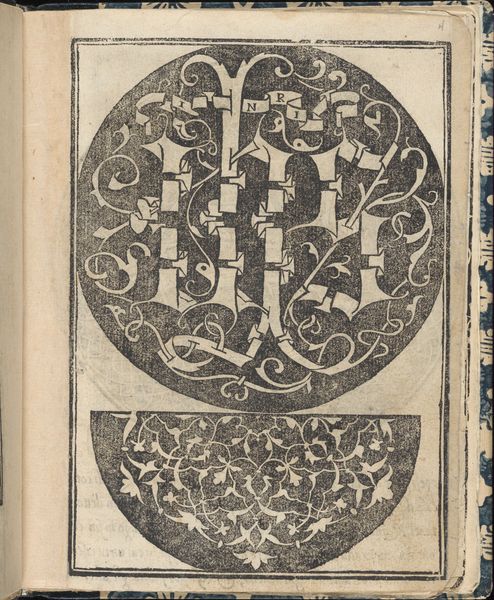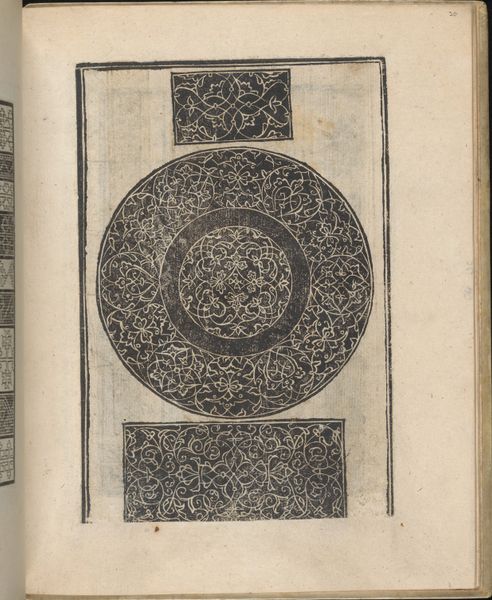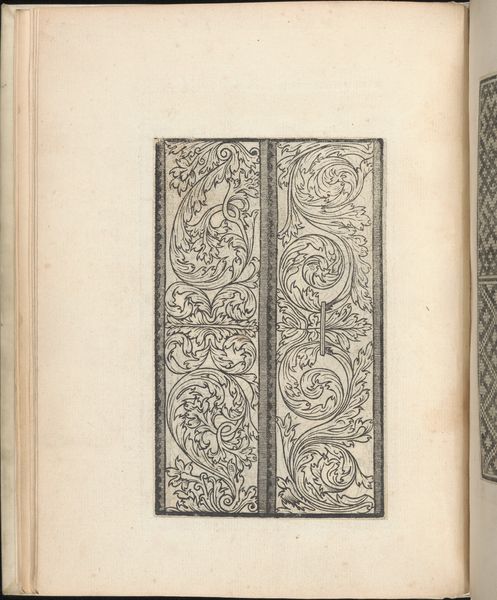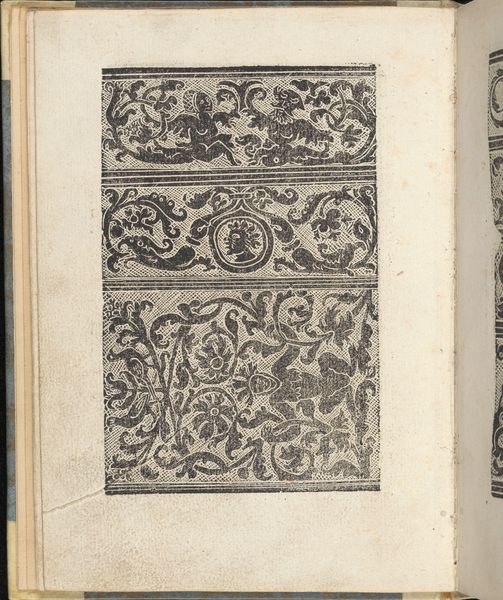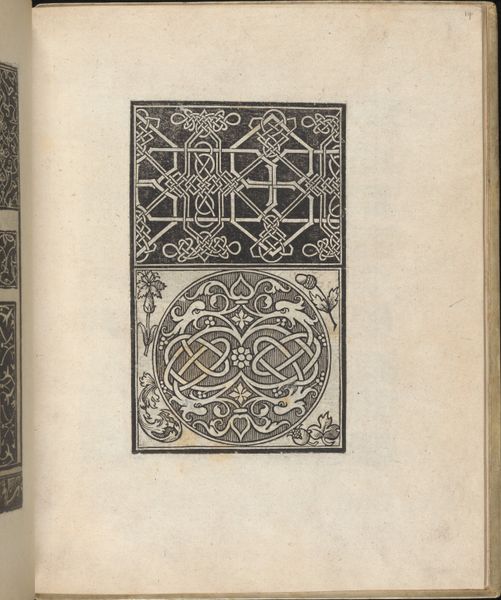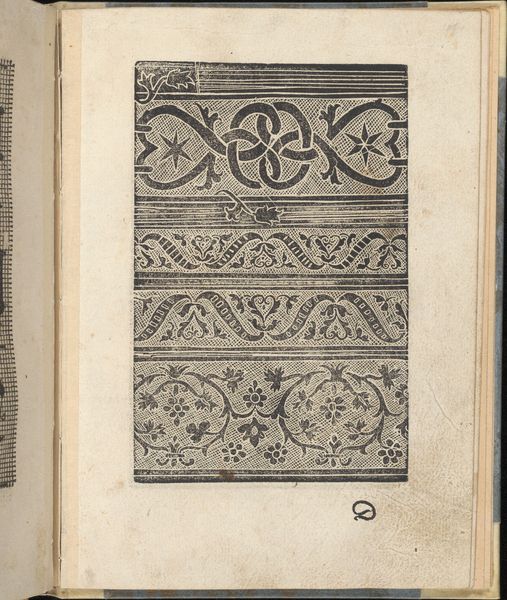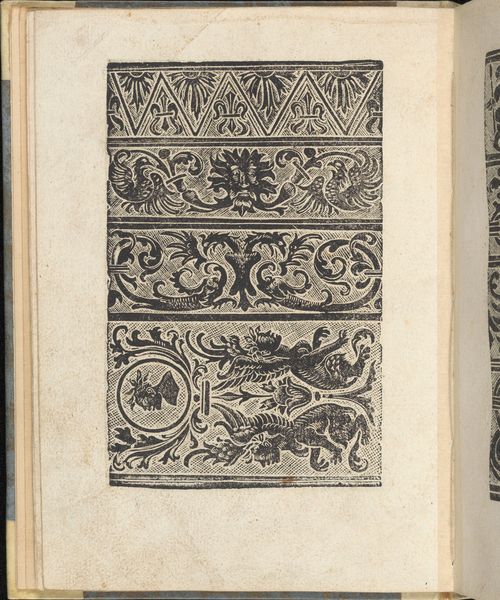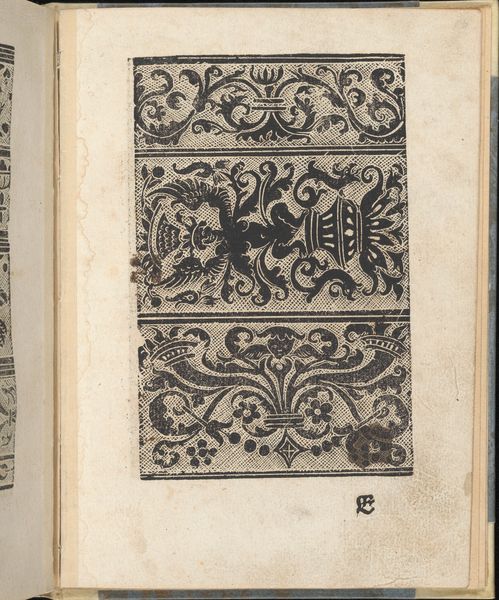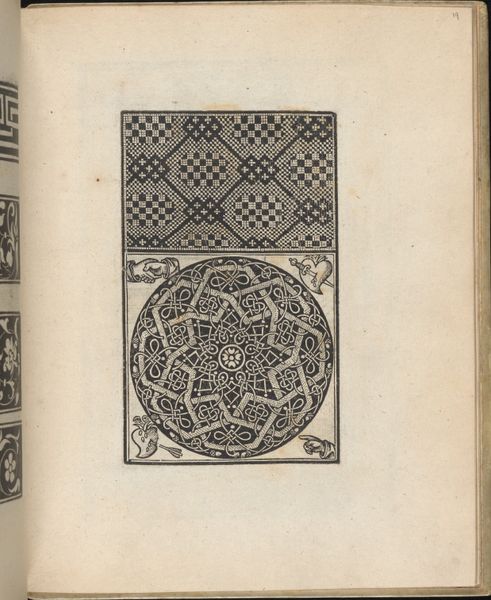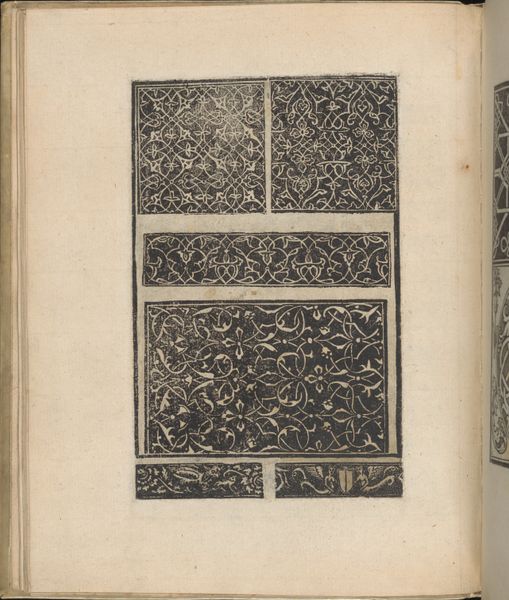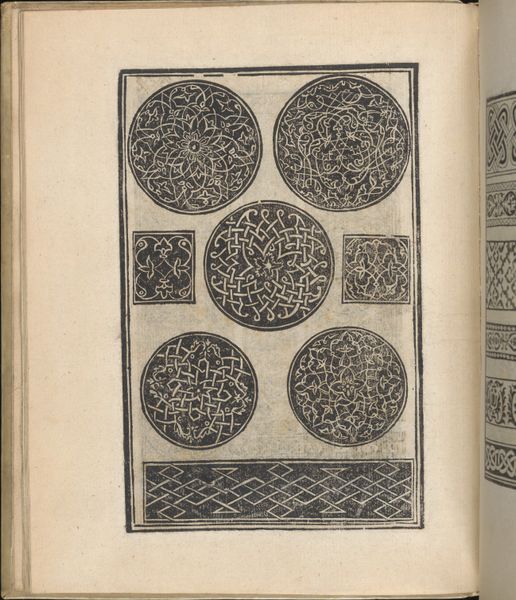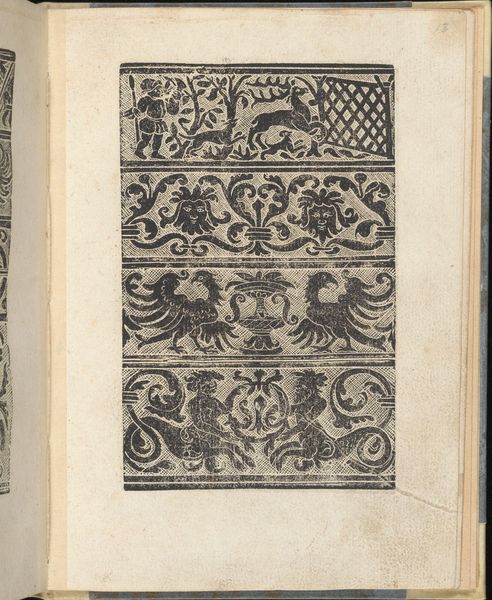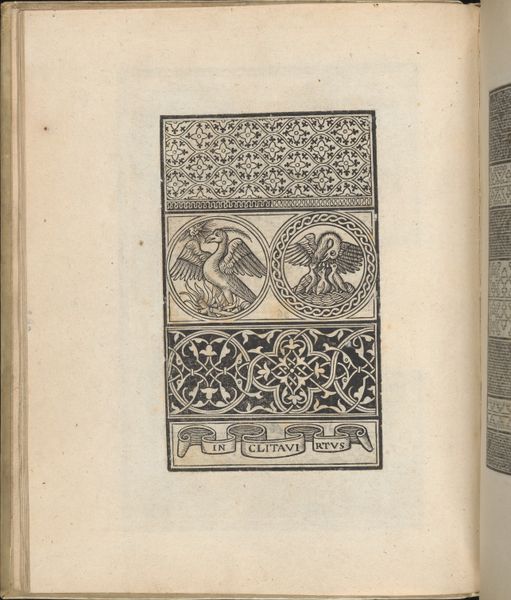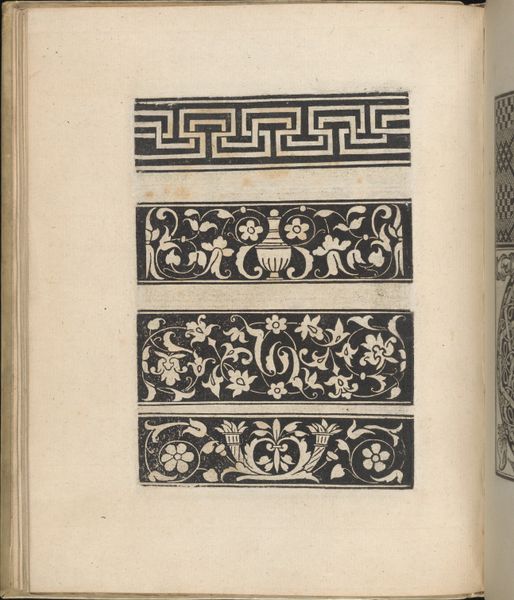
drawing, graphic-art, print, intaglio, typography, engraving
#
drawing
#
graphic-art
#
medieval
# print
#
intaglio
#
typography
#
geometric
#
engraving
Dimensions: Overall: 9 13/16 x 7 7/8 in. (25 x 20 cm)
Copyright: Public Domain
This is a page from "Trionfo Di Virtu. Libro Novo...", made by Matteo Pagano in Venice, sometime in the 16th century. It’s a woodcut, a relatively accessible form of printmaking at the time. Look closely, and you can see how the artist has painstakingly carved away the negative space around the design, leaving the lines and shapes in relief. Ink was then applied to the surface and pressed onto paper, transferring the image. Note the texture of the paper itself, its fibers subtly visible beneath the ink. The design is an elaborate letter "H," intertwined with swirling foliage, reflecting the humanist values that underpinned the Renaissance era. This wasn't just about aesthetics; it was about disseminating knowledge widely. The printing press allowed for mass production of books, spreading ideas and empowering individuals through literacy. This page, therefore, speaks to the democratization of art and the rising importance of visual communication in early modern Europe. Consider how the process of woodcutting, with its blend of artistry and craft, contributed to this cultural shift. It challenges our assumptions about what constitutes ‘fine art,’ and reminds us that creativity can be a tool for social change.
Comments
No comments
Be the first to comment and join the conversation on the ultimate creative platform.
